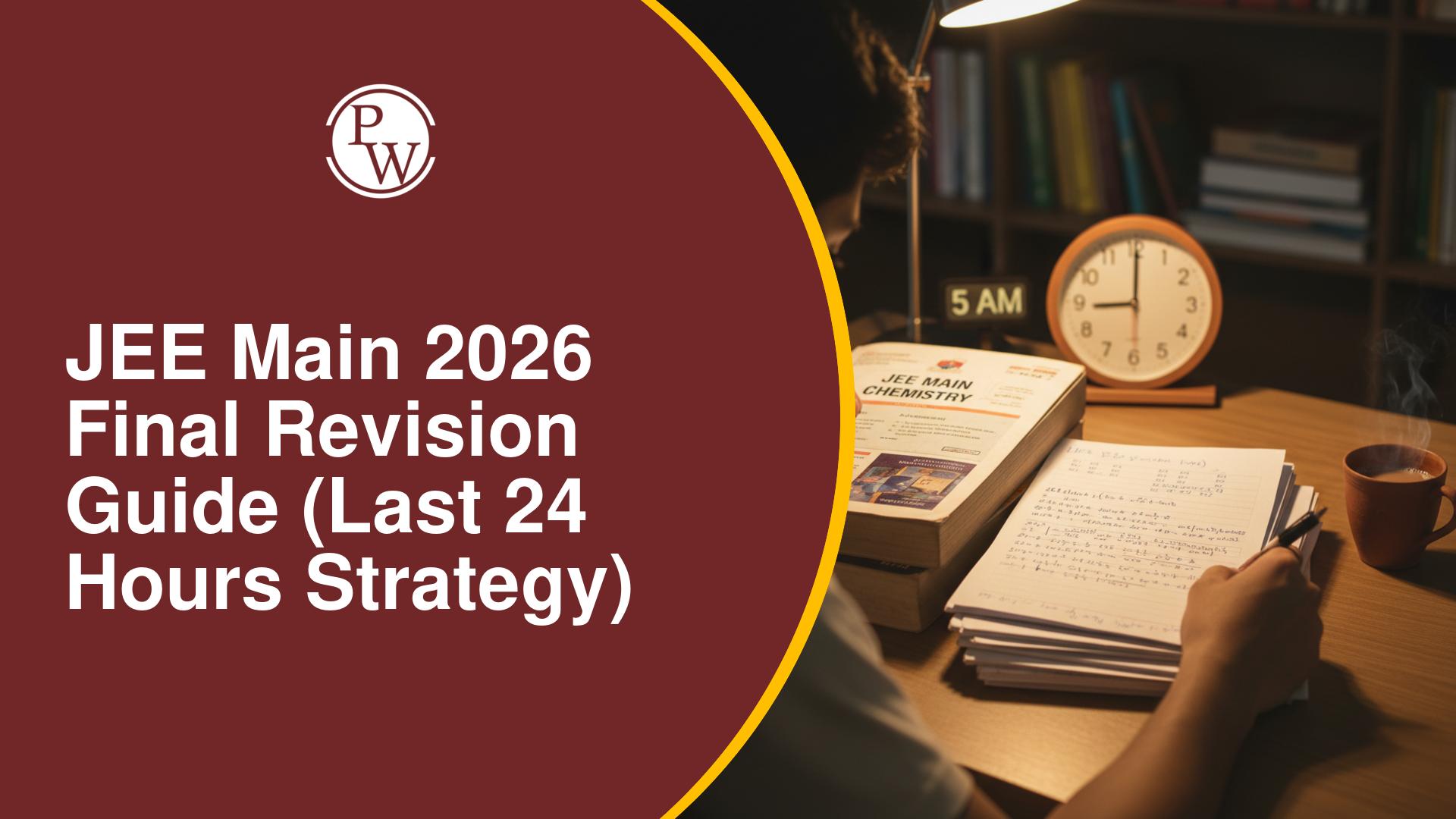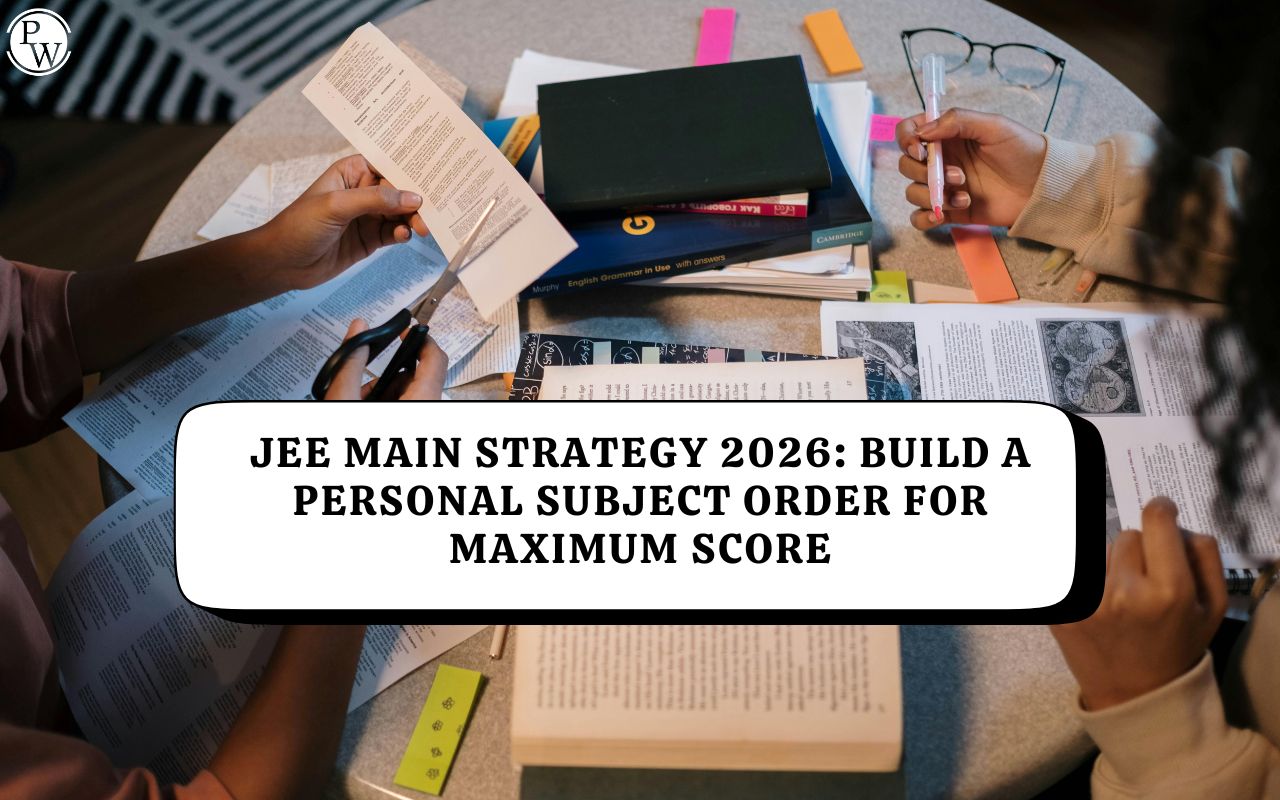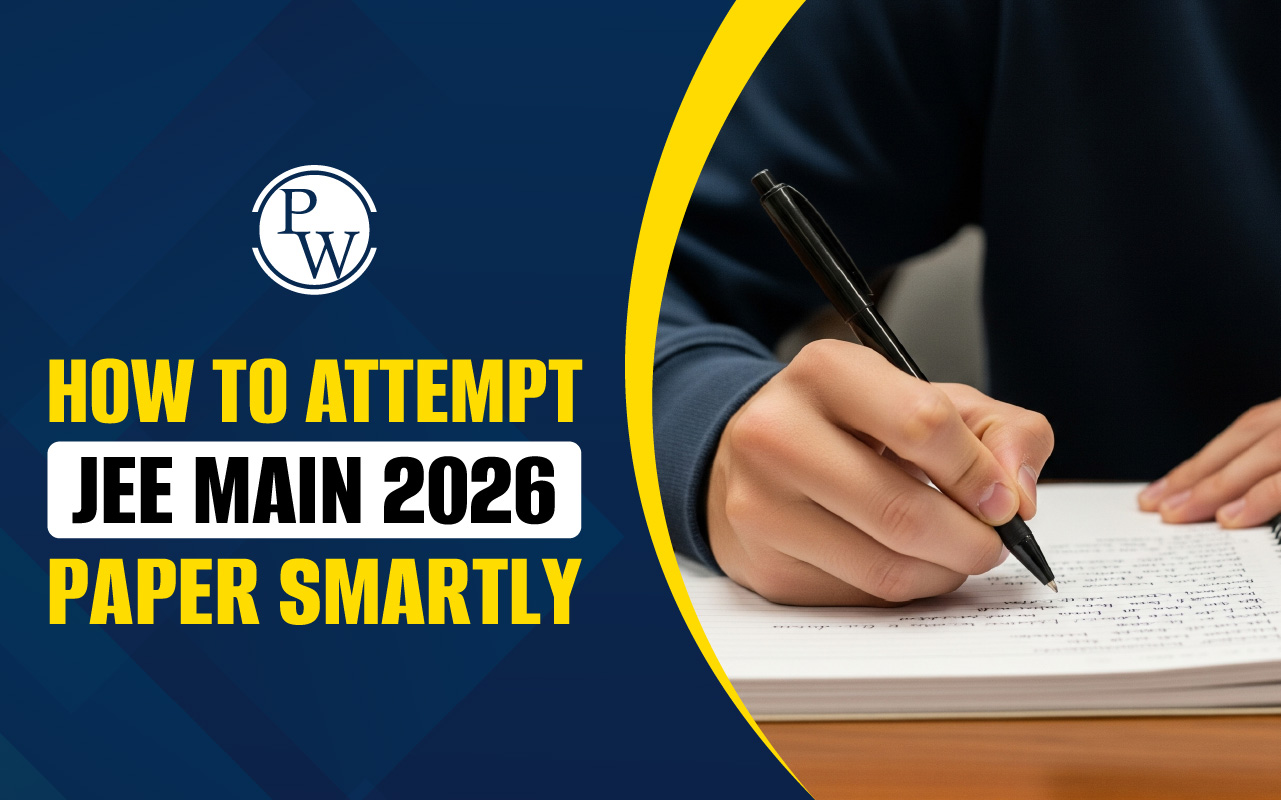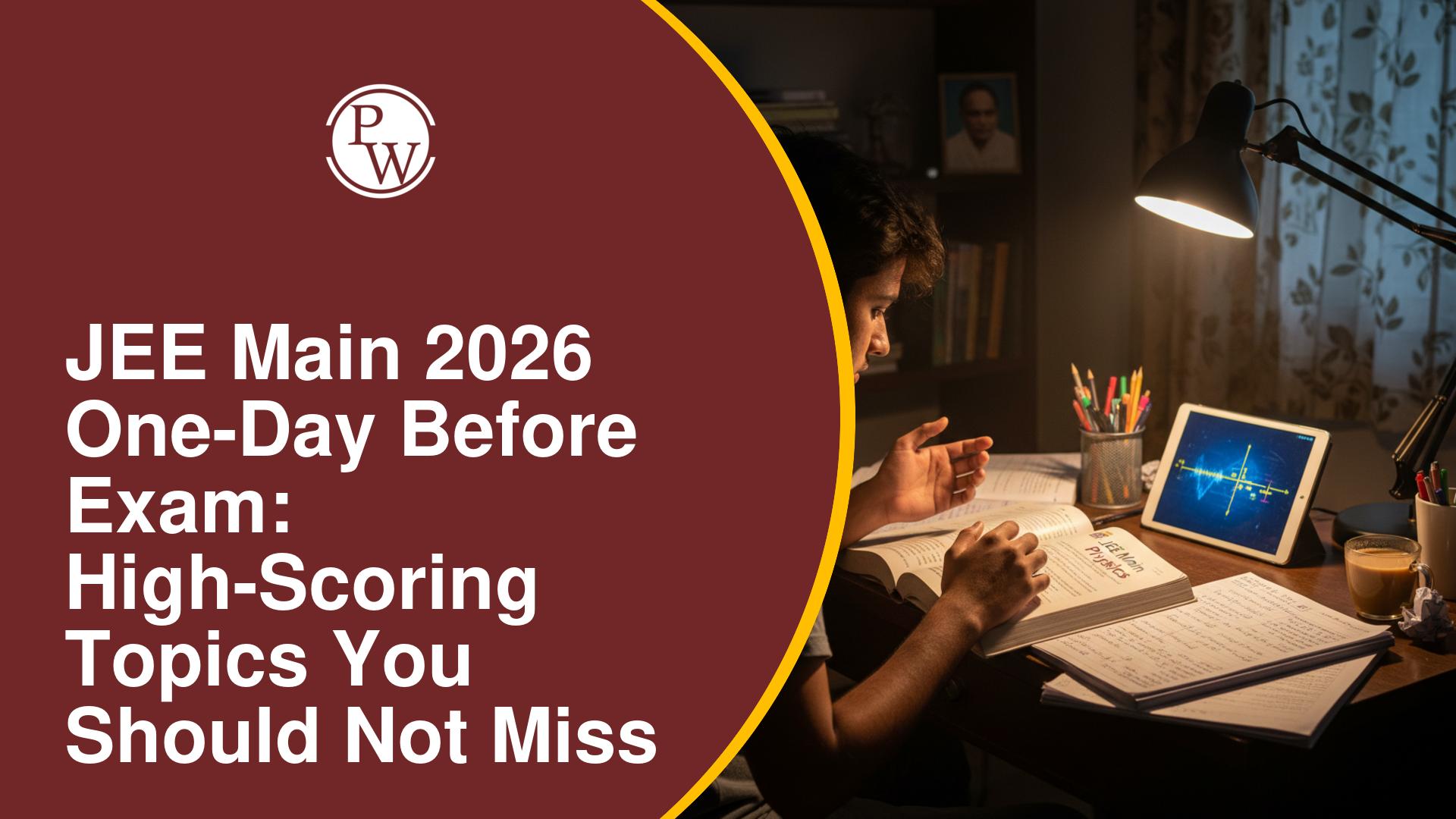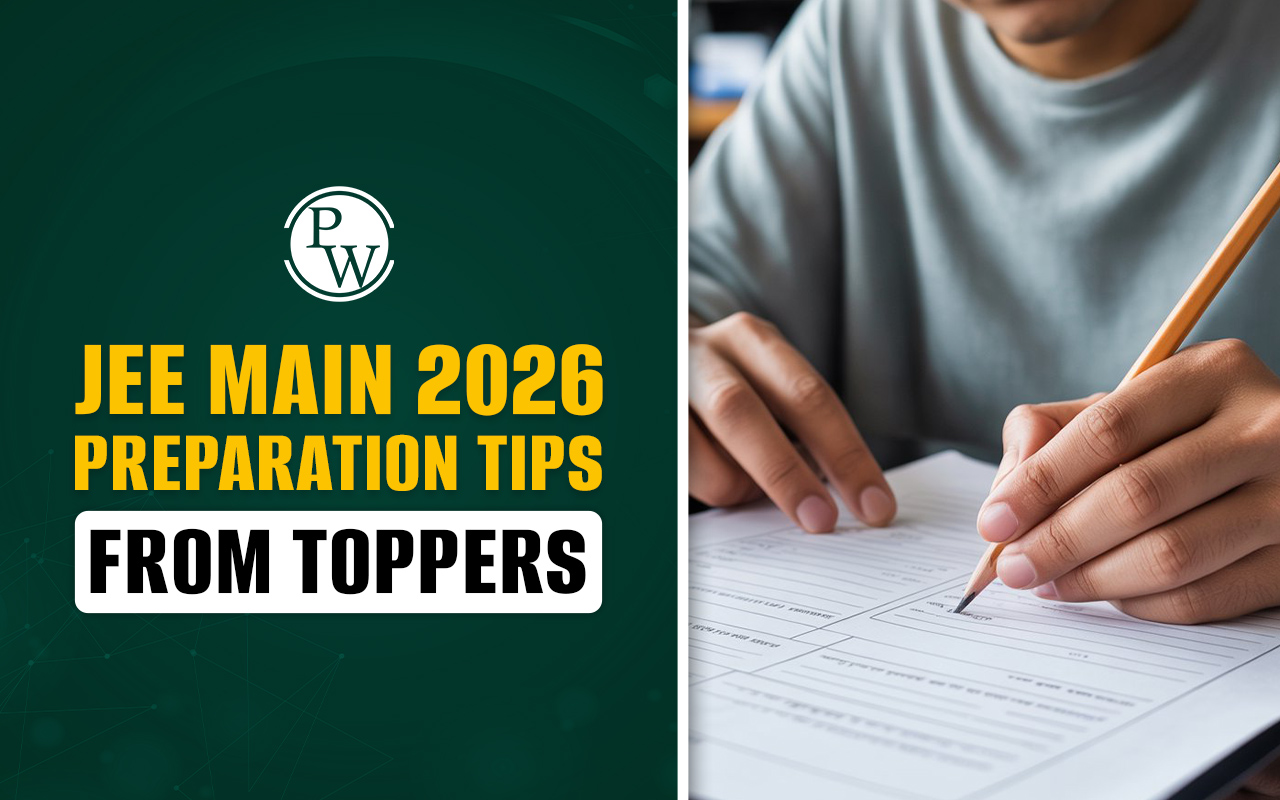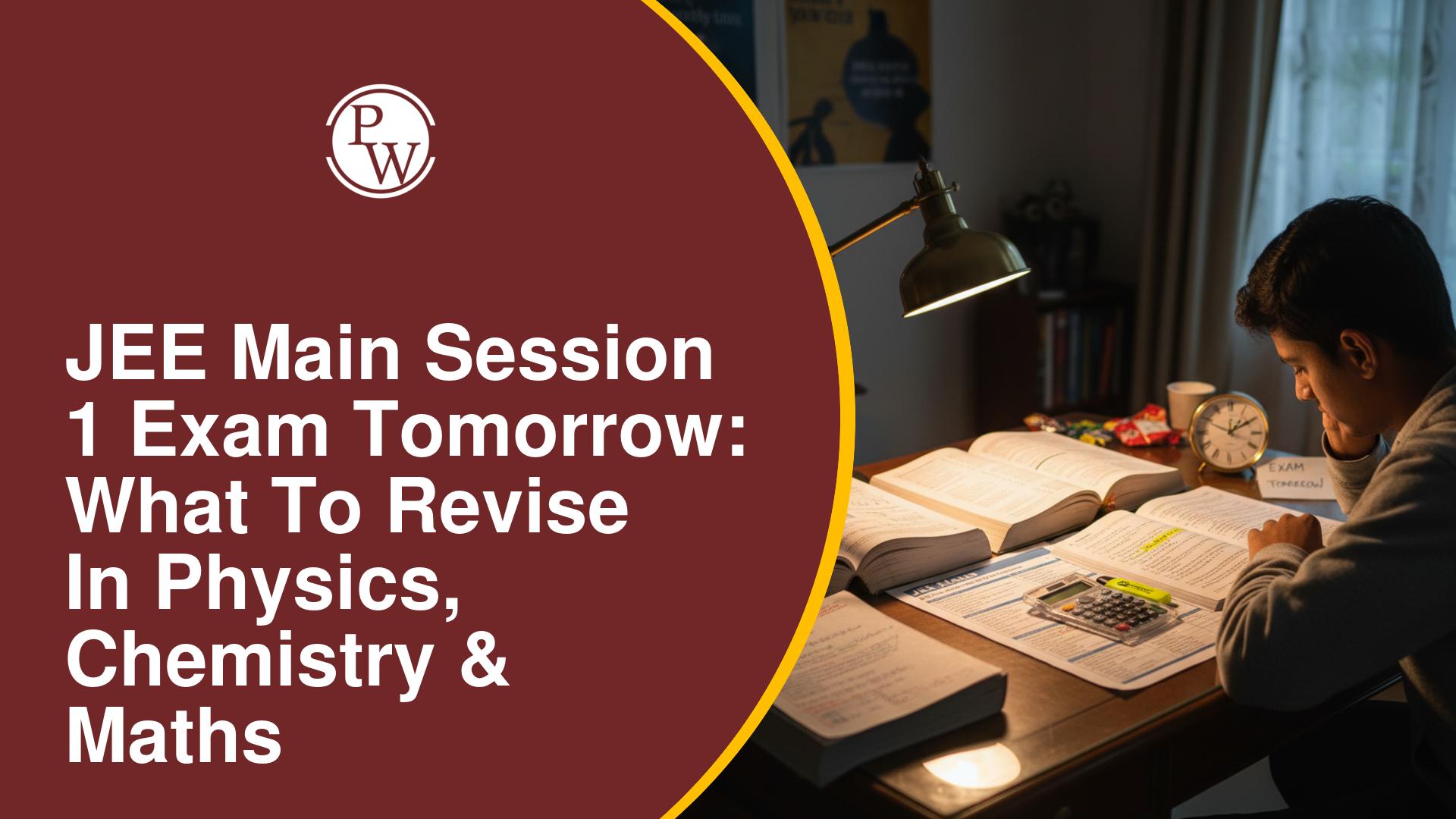
How to Attempt JEE Main 2026 Paper Smartly: JEE Main is one of the most important exams for engineering aspirants seeking admission to prestigious institutes like IITs, NITs, and IIITs. Every year, lakhs of students compete, making the exam highly challenging. Success in JEE Main depends not only on thorough preparation but also on how strategically a candidate attempts the paper in the examination hall.
The JEE Main 2026 exams are conducted in two sessions, with Session 1 held from January 21 to 29, 2026, covering Paper 1 (B.E./B.Tech) and Paper 2 (B.Arch/B.Plan). Smart preparation and careful exam strategy are crucial to securing a good score.
The JEE Main question paper will test you on the bases of knowledge, speed, accuracy, and presence of mind. A lot of students prepare well but lose marks in JEE Main because they do not have the correct strategy to solve the question paper. That is why it is essential to learn how to attempt the JEE Main 2026 paper smartly, just like how one should know the JEE Main syllabus.
Live: JEE Main 2026 Session 1 Exam Live Updates 21 To 29 Jan
How to Attempt JEE Main 2026 Paper Smartly Overview
A smart attempt in JEE Main 2026 means effectively using your time, knowledge, and confidence during the exam. It’s not just about how much you have studied, but how strategically you attempt the paper in those 180 minutes. A good approach helps you decide which subjects or sections to attempt first, how much time to allocate to each, and which questions to pick—focusing on those you can solve quickly without wasting time. The JEE Main 2026 exams are conducted in two sessions, with Session 1 held from January 21 to 29, 2026, covering Paper 1 (B.E./B.Tech) and Paper 2 (B.Arch/B.Plan). Starting tomorrow, updating your preparation and refining your strategy can make a significant difference in your performance.
Also Read: JEE Main Admit Card 2026
If you go through the JEE Main Exam pattern, practice the JEE previous year questions, and follow a step by step paper solving technique then you can ensure that you will never fail to score good marks even if the paper seems to be a difficult one. There are so many students who are going to take the JEE Main 2026 exam. All these students have studied the same syllabus. The one who has followed a good JEE Main 2026 question paper strategy will surely score more marks. So smart attempt is as equally important as hard work for JEE Main.
JEE Main 2026 Question Paper Strategy
You need a strategy to succeed at the JEE Main 2026 exam. Here are some important ones JEE 2026 Question Paper Strategy:
-
Read the paper once completely: During the first 5–7 minutes scan through the questions to understand the paper's overall structure. This helps in understanding which subject is looking easy and where can you score quickly. Many aspirants neglect this step and repent later.
-
Start with a strong section: Begin with the section you are most comfortable with to gain confidence. However, if another section is looking comparatively easy in this paper, it is better to start with it. For instance, if the questions in Chemistry are coming directly from NCERT, start with Chemistry.
-
Distribute time for each section: A 180-minute paper should be divided among the three sections wisely. On an average, Chemistry requires 40–45 minutes, Physics around 55–60 minutes and Mathematics about 70–75 minutes. The last 15 minutes should be kept only for revision.
-
Attempt easy questions first: Choose the questions that can be attempted in one go with minimum calculations. These are the questions that carry marks and should not be missed at any cost. Tough questions can be left for later.
-
Attempt medium questions next: After the easy ones are over, return to medium-level problems. These may take 2–3 minutes each, but can be attempted with a bit of effort.
-
Difficult problems to be attempted last: Leave very tough and time-consuming problems for last. They can consume a lot of time if attempted early. So only attempt them if you have extra time at the end.
-
Revision in last 15 minutes: The last 15 minutes is to be utilized in going over the marked answers once, double-checking the numerical values and revising the questions you had marked for later. This helps in reducing careless errors.
-
Don’t panic, stay calm: No matter how tough the paper is, it is the same paper for all and your competitors are also facing the same situation. Try to be as accurate as possible rather than attempting every question.
JEE Main 2026 Subject-Wise Smart Strategy
The exams are conducted in two sessions: Session 1 runs from January 21 to 29, 2026, covering Paper 1 (B.E./B.Tech) and Paper 2 (B.Arch/B.Plan). As the JEE exam paper contains questions from class 11 and 12 syllabus so each subject needs to be approached differently.
-
Chemistry: It is usually the most scoring subject as many questions are copied from NCERT, particularly in Inorganic Chemistry. Try solving these questions first to save time. If you have been regular in your preparation, you can solve all the formula-based questions of Physical Chemistry. Try to complete the entire subject in 40–45 minutes.
-
Physics: Physics requires conceptual understanding and calculations. So take the help of the JEE Main Physics syllabus to prepare important topics like Mechanics, Current Electricity, Electrostatics, Modern Physics, and Thermodynamics. Try to check your formulas twice before solving a question and verify the units before attempting it. Give this subject 55–60 minutes.
-
Mathematics: This section is usually the longest. It includes Calculus, Coordinate Geometry, and Algebra, which all consume a lot of time. So the best way is to first attempt short formula-based questions like Probability or Progressions and then move on to longer questions. Give 70–75 minutes to this section.
JEE Main 2026 Paper Solving Technique
Question-solving techniques are just as crucial as your overall preparation strategy. With the JEE Main 2026 exams starting from tomorrow, January 21, candidates need an effective approach to tackle the papers. Following a clear, step-by-step solving strategy will help maximize performance on these key dates.
-
Read the entire paper first: It will give you an overview of the distribution of easy, medium and difficult questions. You may find Chemistry relatively easy but Physics very tough. The paper distribution will allow you to strategize the starting section
-
Three rounds technique: Try to solve only easy and direct questions in the first round. Move to medium-level questions in the second round. Attempt the toughest and long-answer type questions in the third round, if time permits. The three-step process will prevent you from spending too much time on questions at the beginning
-
Avoid getting stuck: In case a particular question seems difficult, move on to the next one in 1.5–2 minutes. Return to that question later. This keeps the confidence high and prevents you from panicking
-
Smart subject order: Try to complete the easiest subject first within 40–45 minutes, so that you can tackle more problems. Solving Physics needs a certain level of patience as many concepts and formulae are required. Mathematics generally takes the longest time, so attempt it at the end or in the middle, according to your comfort level
-
Revision during last 15 minutes: Use this time to review the answers you were unsure about, check the numerical questions and correct the silly mistakes. The last 15 minutes are often said to have improved the scores of toppers by 10–15 marks.
How to Attempt JEE Main 2026 Paper Smartly FAQs
What is the right way to attempt JEE Main 2026 paper?
How much time should I give to each subject in JEE Main 2026?
What is the JEE Main 2026 paper solving technique?
Should I always attempt Chemistry first in JEE Main 2026?
How do JEE previous year questions help?

